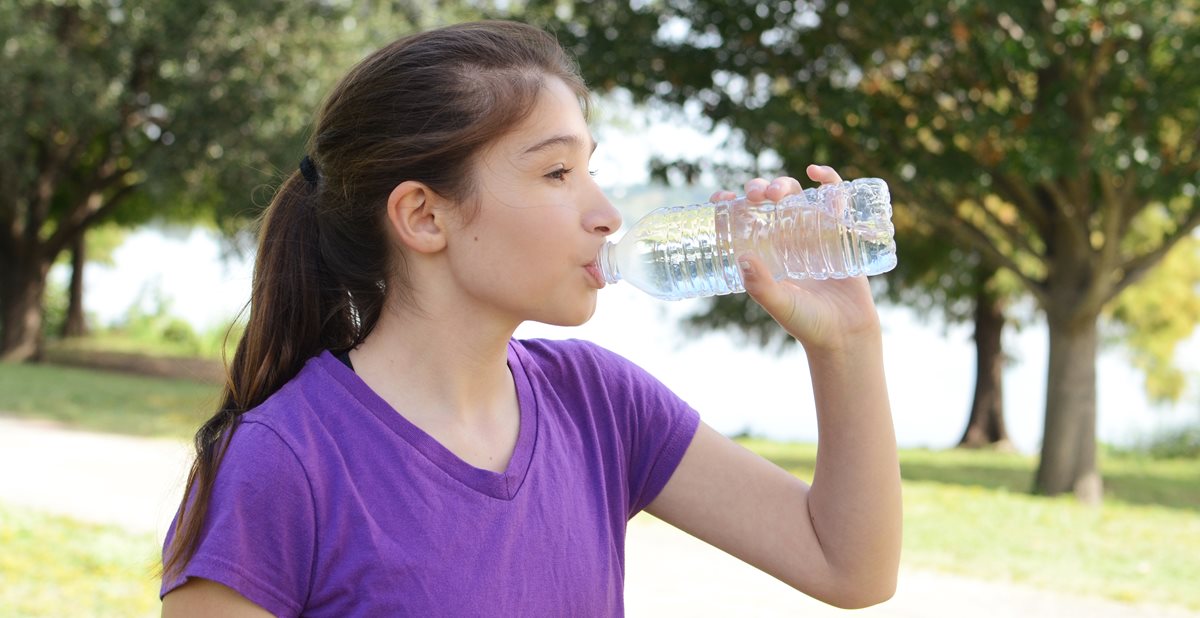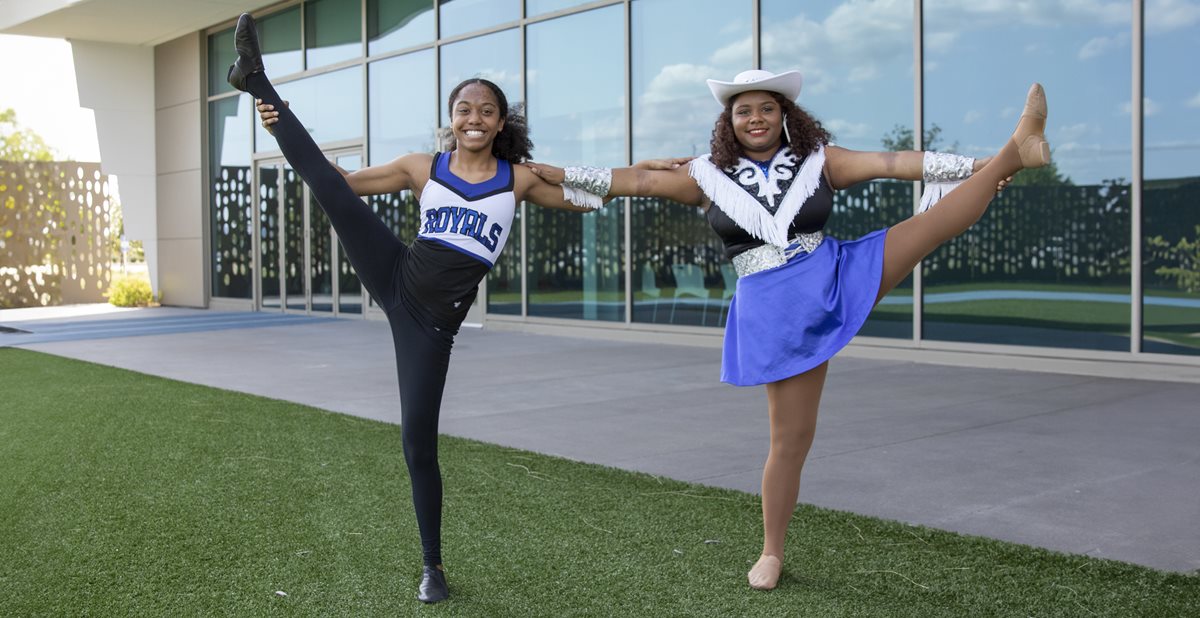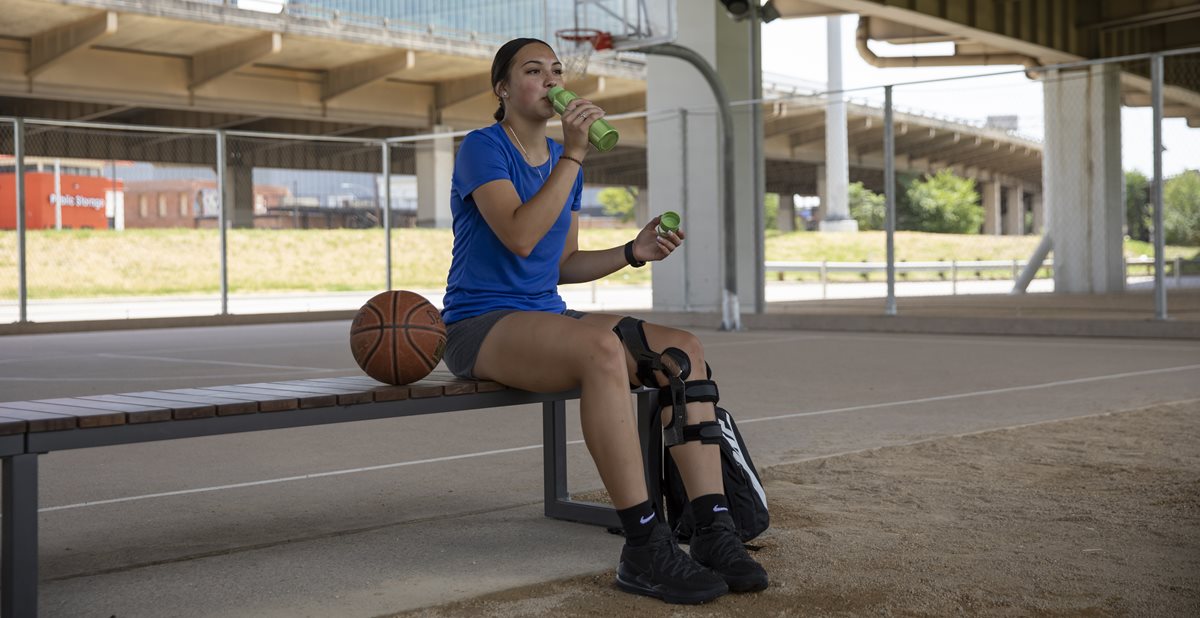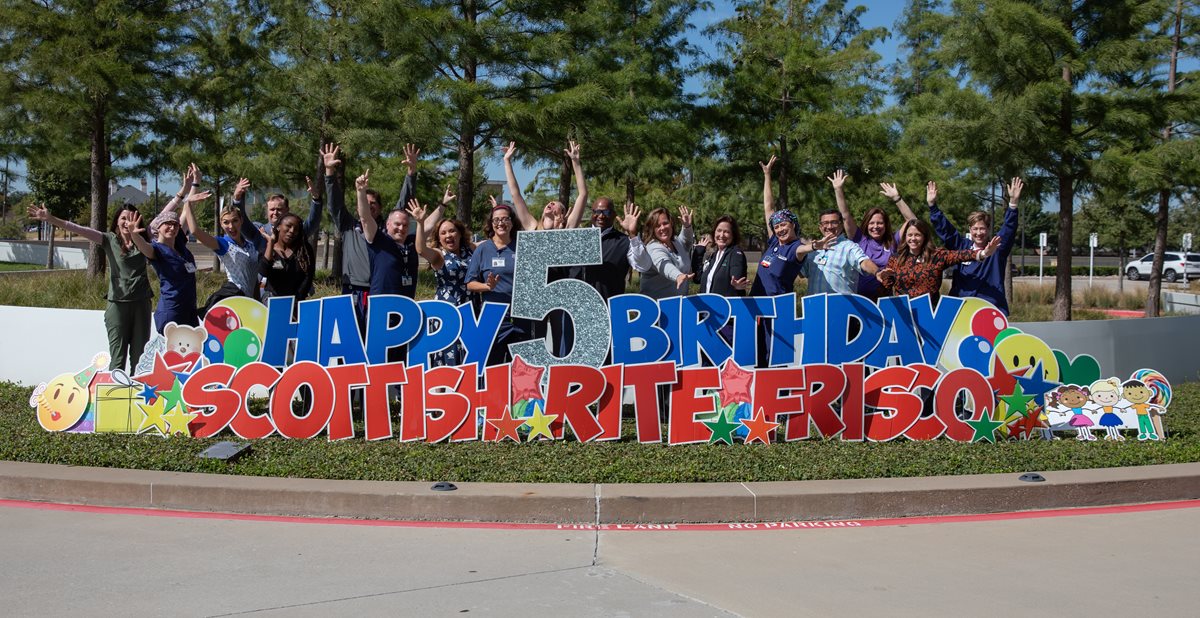
Sep 19, 2022 / Sports Medicine
Hydration Tips for Young Athletes
- Choose a fun water bottle. Try customizing with team stickers so it’s easy to identify on the sidelines.
- Add high water content foods like oranges, cucumbers or yogurt to meals to make hydrating more fun.
- Drink fluids throughout the day. Carry your water bottle or stop by the water fountain between classes.
- Do not drink a large volume of fluid right before an event or physical activity.
- This may not fully hydrate or rehydrate the athlete.
- This may cause stomach discomfort or a trip to the restroom during the event.
- Drink plenty of fluids during and after the event.
- Learn what works for different activities.
How Much Fluid Does My Athlete Need?
Fluid needs vary based on age, gender, weight and even genetics. For young athletes, other factors are just as important, such as stage of development, activity type and the duration and intensity of activities. For some athletes, the amount of sweat or the composition of sweat may also affect how much and what type of fluid is needed. The below table shows a child or teen’s daily baseline fluid needs based on age and gender. Make sure to increase fluid intake above this when active or playing sports.
.png?width=500&height=243&uh=06df005988ae54ca66d23cddf9ceac2db89dcc7a71d2efde38dff3a0e3dcc5a1&administrationdomain=https%3A%2F%2Fcms.scottishritehospital.org)
Hydration Strategy for Sports
Having a plan for staying hydrated is essential for young athletes playing sports or doing other physical activities. A hydration strategy is especially important for athletes who train in extreme temperatures or climates and participate in physical activities that last more than an hour. A good strategy for young athletes is to drink fluids before, during and after physical activity.
Before:
Drink fluids with and in-between meals and snacks throughout the day. Two to fours hours before physical activity, athletes should consume 2.3 to 4.5 milliliters per pound of body weight. This is the minimum amount of water your young athlete should be consuming in milliliters. A 12-ounce water bottle is about 350 milliliters, which is appropriate for pre-activity hydration for a 100-pound athlete.
During:
Athletes 9 to 12 years of age should drink three to eight ounces of fluids every 15 to 20 minutes. Athletes 13 to 18 years of age should drink 34 to 50 ounces of fluids every hour.
After:
Young athletes should drink fluids right after the event or physical activity, as well as with meals and snacks following the event.
When to Drink More Fluids
Special Conditions
Certain conditions can increase an athlete’s fluid needs. These conditions may increase sweat rates, alter the body’s ability to cool itself and increase the body’s core temperature:- Hot weather
- Humidity
- Altitude
- Type of sport played
- Length of activity
- Clothing
- Recent illness
- Certain medications or supplements
More than Water
Water is the first choice for hydration but sometimes a sports drink or salty snack is necessary to replace sodium and other electrolytes lost through sweat and to provide energy from carbohydrates. After puberty, an athlete may sweat more, so replacing electrolytes becomes more important. Some salty snack ideas are sports drinks with six to eight percent carbohydrate, pretzels or salty crackers, cheese, pickles, or broth-based soup or vegetable juice.A sports drink or salty snack may be needed for the following:
- High intensity activities lasting longer than an hour
- Tournaments and back-to-back events
- Hot conditions, indoors or outdoors
- Having salt on the skin or clothes after activity
Signs and Symptoms of Dehydration
If your young athlete is experiencing any of the following signs and symptoms, he or she may be dehydrated, and a hydration strategy may be needed.- Fatigue early in the game or practice
- Decreased/poor performance
- Headache
- Muscle cramps
- Overheating
- Difficulty focusing
- Urine that is dark in color, like apple juice
- Low amount of urine
Signs and Symptoms of Heat Illness
Heat illness is a preventable condition, and dehydration is an early sign of heat illness. Respond quickly if you notice any of the following signs of heat illness:- Weakness
- Vomiting
- Excessive thirst
- Headache
- Fatigue
- Sweating
- Nausea
- Light-headedness
- Confusion or disorientation
Additional Support
With practice, a young athlete should learn what hydration strategy works best for training and competition. If you need help, reach out to a medical provider, the school’s athletic trainer or a certified sports dietitian for personalized recommendations.Learn more about hydrating in cold weather and five strategies for keeping your young athlete fueled.
Learn more about hydration and nutrition for young athletes.



